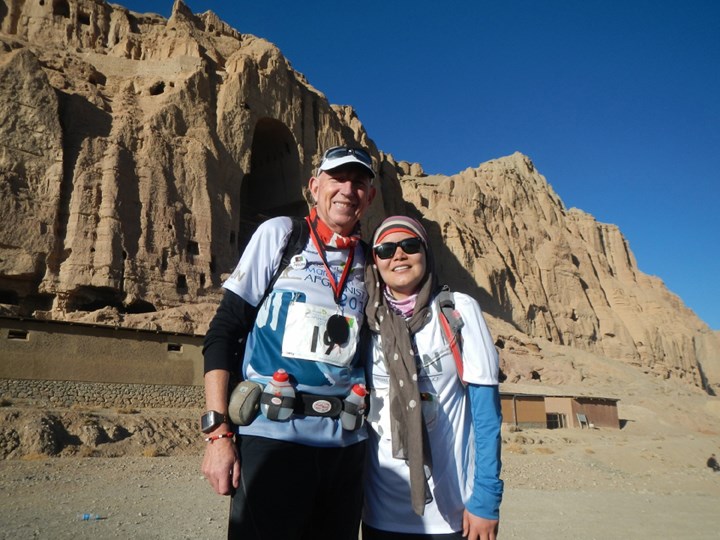Famed marathoner Martin Parnell helped give a young woman the freedom to run earlier this month in one of the most women-oppressed countries in the world. “(Running) is an opportunity to express themselves.
Famed marathoner Martin Parnell helped give a young woman the freedom to run earlier this month in one of the most women-oppressed countries in the world.
“(Running) is an opportunity to express themselves. They are doing something they want to do, ” Parnell said of a group of females who ran in the Afghanistan Marathon on Nov. 4. “They see running as a kind of freedom. ”
Last week, Parnell returned from Bamiyan, Afghanistan, where the 60-year-old Cochranite was one of a handful of international runners - and 60 more Afghan men, women and children - who participated in the war-torn country’s second-ever marathon.
Parnell first read about Afghanistan’s inaugural marathon last year while recovering from treatment for a blood clot in his brain. He said he was moved by the determination of a woman named Zainab - the first female to run a 42-kilometre race there. She was chastised and people threw stones at her while training.
“It really inspired me, ” Parnell recalled. “I thought, ‘Maybe if I could get better and I get running, I will try to go to Afghanistan and support these girls and women. It’s very different in the western world, where we can sign up for a marathon just about every weekend. For them, it’s a whole different situation. ”
Parnell connected with the charity Free to Run, which supports females in conflict countries who want to run, and two weeks ago he secretly boarded a plane into the Middle East. He acclimated to the weather conditions and the 9,000-foot elevation for about a week, and then, two days before the marathon, he met a 25-year-old local runner named Kubra.
“She said she wanted to run her first marathon, ” remembered Parnell. “I saw my purpose was to maybe try and help her to do that. ”
So on the morning of Nov. 4, Parnell and Kubra waited at the start line with about 70 other runners, including nine other international participants from Ireland, England, the United States, Canada and more.
A 10-km race also registered about 150 runners - mostly young girls from area schools.
Parnell said seeing the group was an emotional moment for him.
“Running was never part of their culture. There have been tremendous issues there over the years. Even now, when they train, they tend to get harassed and abused … but they feel it’s their right (to run), ” he said. “They are doing something they want to do. ”
Parnell said he and Kubra agreed on a nine-minute run, one-minute walk pattern for her first marathon, which was a huge challenge for the first-timer. When he and his Afghan partner got to the turnaround, it had already been 3:36. The run’s cut-off time was seven hours.
The two managed slowly through the difficult course, and they finally crossed the finish line at 6:52 - just eight minutes ahead of the course shut down.
“We talked about a plan … we stuck to that plan, ” he said. “She was suffering. She had stomach pains … but she hung in there until the end. ”
Parnell said the powerful message Kubra and the other Afghan females who not only made it to the race’s finish line - but had the courage just to try - will stay with him as he continues to run in the future.
“The determination and the mental strength of these girls and women who are training in pretty tough conditions; the harassment they must endure … It’s not an easy path for them, ” he said.
“They’re leaders to me in their world. ”
